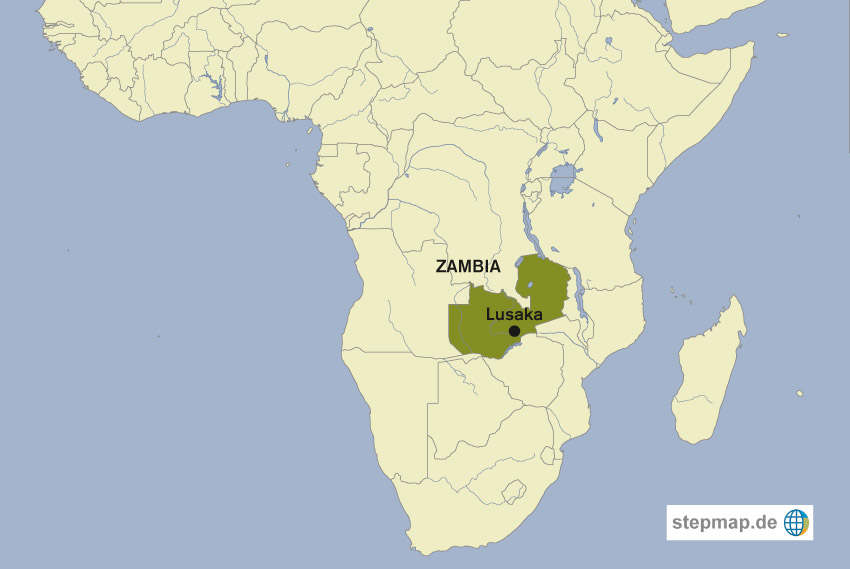Nigeria’s ICT market place
Success due to combination of factors

The Otigba Computer Village in Lagos, Nigeria’s biggest city, is known as “West Africa’s Silicon Valley”. It serves as a marketplace for the sale of ICT products and related services, including the repair of used products. ICT stands for information and communications technology. Otigba differs from Silicon Valley in the US, which is primarily a centre of innovation and corporate headquarters. Nonetheless, Otigba is very important. The Computer Village probably is Africa’s largest ICT market.
Among the reasons for its success are positive education spill-overs. Experts pass their knowledge and skills to others. About 50 % of the persons working here have a college degree and 30 % have undergone technical skills training. Skilled workers teach young, untrained colleagues how to sell software, repair mobile phones and exchange batteries, for example.
Formal education opportunities are quite limited in Nigeria, so on-the-job training is particularly relevant. Trainees in Otigba learn to take on more responsibilities or open their own businesses. They become multipliers themselves.
Job mobility is high in the Computer Village, and there are many start-ups. Both phenomena facilitate knowledge transfer and skills training. The village-like character of Otigba helps. People are closely connected, sharing resources and knowledge.
Too few jobs in the formal sector
Job opportunities are good in Otigba’s informal sector, but that should not be overrated. Indeed, it reveals a need for state action. There obviously are not enough jobs in the formal sector, which observe labour law and social-protection rules – including Nigeria’s minimum wage. The informal sector is growing fast, not least because it is largely unregulated and its businesses are not registered.
At first glance, the formalisation of the informal businesses therefore looks desirable. However, there are downsides as well. As labour becomes more expensive, existing jobs may be at risk.
Policymakers face a dilemma. Informal structures arise without regulation and official planning. They ensure livelihoods for many people and are therefore valuable. Informality, however, is also problematic in many ways. Businesses circumvent issues such as environmental protection and occupational safety. There are no social safety nets, and contracts are not enforced reliably. Infrastructure – from power supply to financial services – remain insufficient.
Formally organised sectors go along with higher costs but they are also more productive. Informal businesses cannot create broad-based prosperity, though they do prevent extreme poverty in settings where formal companies cannot thrive. Government policies should therefore formalise informal structures carefully and cushion the negative consequences with appropriate countermeasures (see contribution by Rishikesh Thapa in Focus section of D+C/E+Z e-Paper 2021/09).
All of this applies to Otigba. Garbage piling up in public places and intermittent electricity supply are evidence of overburdened infrastructure. To a large extent, these issues are linked to what made Otigba successful in the first place, specifically the high concentration of economic activity within a small area. Many of the companies are small and benefit from the agglomeration effects of the cluster. For example, the procurement costs of input goods are comparatively low. Moreover, thanks to the high concentration of similarly qualified and specialised workers, the supply and demand of talent matches up better and more often. Specialised employees can switch quickly and easily from one company to another, without facing a long commute or having to change their homes. These things boost productivity.
First-mover advantages were helpful too. They contributed to Otigba growing to its present size. The Computer Village was the first ICT marketplace where a corresponding service industry was established. It expanded as ever more ICT products were sold. Customers would easily find a mobile-phone contract and could thus use their new mobile phone immediately. When they bought a new laptop, they could have the necessary software installed or they could also acquire other accessories right away.
Customers were made aware of such opportunities in large part due to advertising in local and regional media. Because prices and product information were published in newspapers buyers could compare what was on offer. Before long, customers from all over Nigeria – and even beyond – were coming to Otigba.
Environmental problems and overburdened infrastructure
Serious downsides, however, include environmental hazards such as diseases, pests, uncollected waste or clogged traffic. Moreover, there is a lack of housing. Rents are high and real estate is expensive.
Such forms of market failure require corrective state action. Infrastructure must be expanded, including streets, parking space and reliable public transportation. Constant gas and diesel shortages need to be addressed. Moreover, Otigba needs a stable electricity supply, internet coverage and reliable wastewater disposal.
The Nigerian government wants to solve these problems by moving the Computer Village from Otigba to Katangowa. While Otigba simply does not have enough space, the new location should provide sufficient land on 15 hectares for the government’s expansion plans. The new ICT and innovation centre is meant to include three marketplaces with over 1000 businesses each. There are plans for parking lots, loading and unloading zones, warehouses and workshops for assembly operations. Reliable power supply has been promised as well, and it would be a considerable competitive advantage in a country where 40 % of the people have no electricity and over half of the people are used to interrupted services only.
The government expects that the relocation and improved conditions will allow the Computer Village to grow faster. Whether that happens will depend on how well the businesses cope with the relocation and the formalisation that it necessarily implies. Indeed, the relocation may actually destroy Otigba’s agglomeration effects as well as its positive external educational effects.
One major concern is that customers will stay away from the decentralised location because travel distances are too long. Furthermore, retail space and real estate may well prove unaffordable for many merchants, so some businesses may not be in a position to relocate at all.
Local people have also voiced complaints. The new location is not on previously unused land. A clothing market which was marked by similar problems as the Computer Village was removed to make space.
Nonetheless, Otigba’s development is a success story. The Computer Village is a good illustration of self-reinforcing growth being kickstarted by a large number of risk-taking, well-educated and high-skilled workers. Success depended on a variety of factors, including agglomeration effects, positive externalities and first-mover advantages. The interplay is obviously difficult to replicate, which must be kept in mind when more plans are made to formalise previously unregulated economic development.
Johannes Paha is an assistant professor at the Justus Liebig University in Gießen. He specialises in competition and development.
johannes.paha@wirtschaft.uni-giessen.de
Lydia Wolter is a student of economics and English at the University of Potsdam. This essay is based on her bachelor’s thesis.
lywolter@uni-potsdam.de









